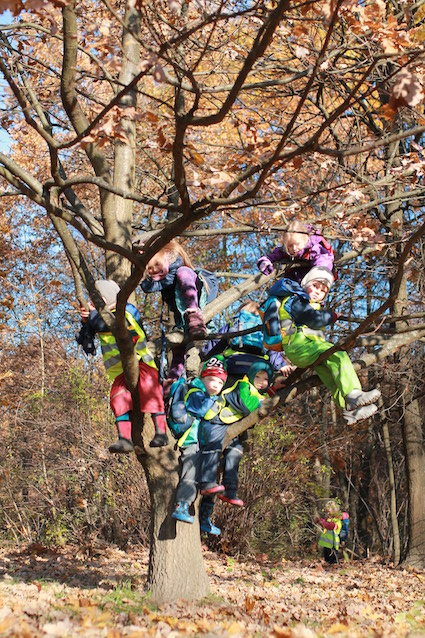
In this blog post, I had the opportunity to interview Zilvinas Karpis, who founded the first outdoor nursery in Lithuania. As with other European countries, there is increased focus and interest in such approaches. There is lots of evidence that points to the benefits of spending time outside, being physically active and in a natural environment. So here is the story of Lauko darželis, which literally translated means “outdoor nursery”. Many thanks to Zilvinas for supplying the photos.
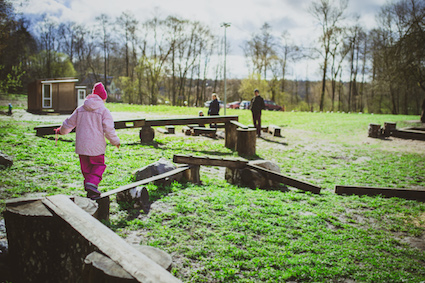
When did you establish Lauko darželis and why?
I founded the nursery on 24th April 2014 and first children began on 1st June 2014. I started the kindergarten because of my children. By that time they were 1.5 and 3.5 y old. I was travelling doing a lot of business trips to Sweden. Thus I was familiar with outdoor kindergartens. I was looking for same in Lithuania, but didn’t find any. So I decided not to wait until my children grew up, and just started it.
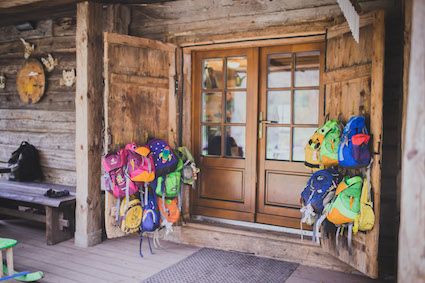
What have been your biggest challenges and successes?
The first challenge was a suitable place. I decided that for special kindergarten I needed a special place. So I literally drove and walked all of the city parks and bigger green areas in Vilnius. I was very successful. I found historical place with river near by, near underground tunnels left after world war times, huge oak trees, a play park, pond, hill-fort (mound), remains of Manor house and water mill.
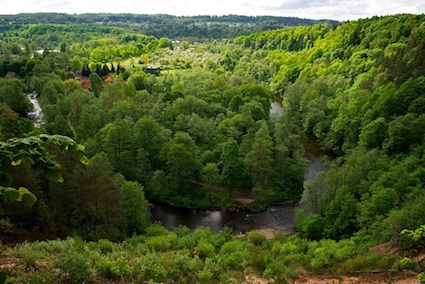
The next challenge was to be legal. As officially in Lithuania we didn’t have anything similar to outdoor kindergartens I choose legal form of a children’s camp as we started in the summer. After we were sure that this idea wass working I changed legal form to day care centre. It’s more official but still doesn’t need to fit in to requirements applicable for kindergartens. And after one year of operation, in order to get symbolic support from government we registered our setting as an official kindergarten.
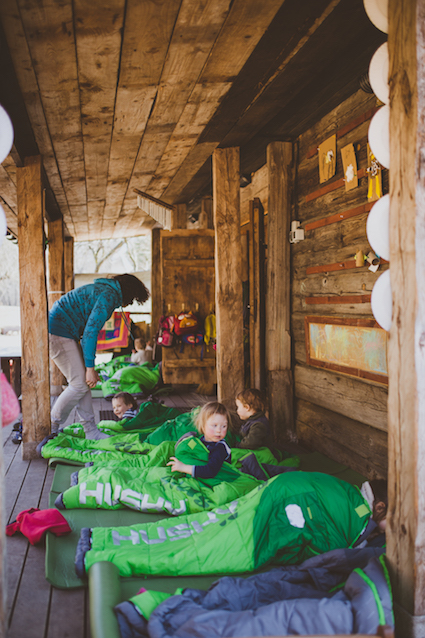
Another challenge was to find proper teachers. In the beginning and even now, not every candidate understands what is expected of them. No one has such early years outdoor experience. In Lithuania there is not a place where outdoor teachers are trained. No-one has the necessary competencies for this type of work.
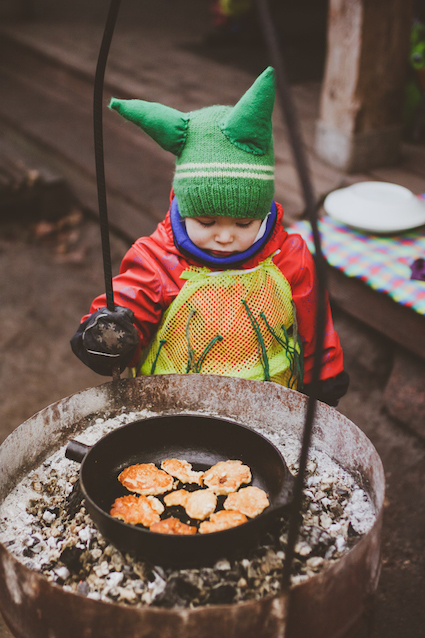
How have the government/authorities/ inspectors viewed your nursery? What do parents think?
From the beginning we didn’t meet requirements for kindergartens, because requirements are not suited for working outside all day all seasons. Now we work close with national and local institutions and inspectors to adapt the current legal system to outdoor kindergartens. We have had meetings with Ministry of Health, Ministry of Education and Sciences to adopt current hygiene requirements for outdoor kindergartens.
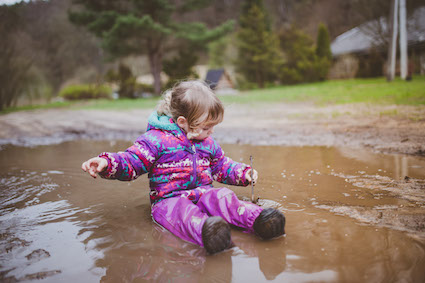
What professional development have you and your staff undertaken to develop your practice?
Locally we had no place to gain extra knowledge or experience. So we visited outdoor kindergartens in other countries such as UK, Iceland, Norway, Sweden, Estonia, Germany, Austria, Czech Republic. We have also been supported by a visit from early years practitioners in 2015 from England, Northern Ireland, Iceland and the USA. In 2014 we had intensive training course held by Creative STAR Learning (Juliet Robertson),
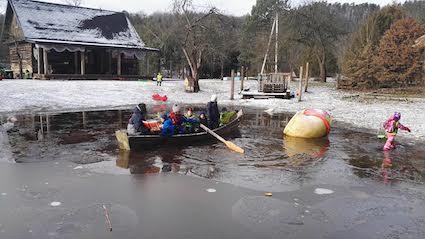
In 2015 and 2016 we took Skogsmulle outdoor training (held by Swedish experts), This year we won a project Erasmus + for Forest School training in UK for 8 of our employees.
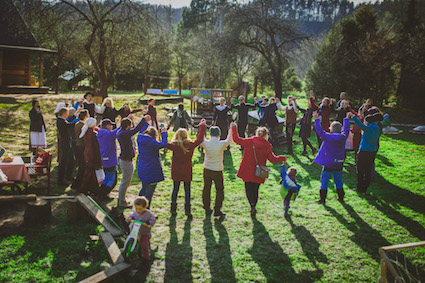
What does the future hold for outdoor nurseries in Lithuania? How many now exist and what are the experiences of other outdoor nurseries?
Since we started more outdoor kindergartens started in other cities as well. Others saw that this is actually possible! There are about 10 outdoor kindergartens in Lithuania. We expect this number will grow. There are difficulties because of legislation but we are actively working with this (meeting institutions and inspectors) to make more possibilities for this kind of kindergartens – to be legal. Today we are not.
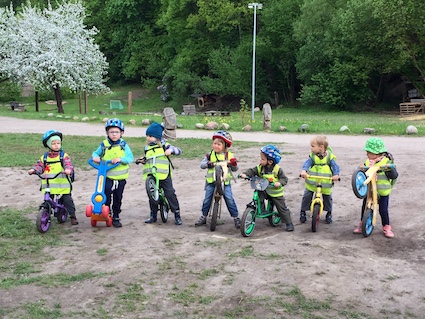
We are willing to support other kindergartens. We make seminars about outdoor kindergartens, outdoor learning, etc. So we share our experience and we encourage teachers to go outside. We post articles to media to encourage parents to go outside.
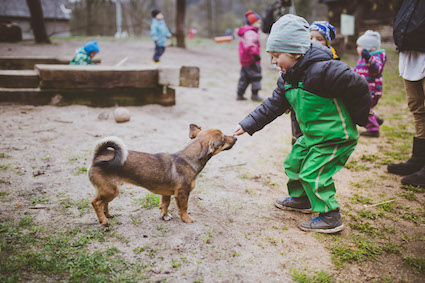
As you can see from the photos, the nursery is a vibrant place with all sorts of happenings. As with all new ventures, there are challenges which need to be addressed and this can be ongoing. What is positive is to see the children cope in all weathers. This was a concern prior to the first winter. When the temperatures dropped to 18 degrees below zero, the youngest children happily spent half the day outside and the older children continued as normal, seemingly unaffected by the cold.
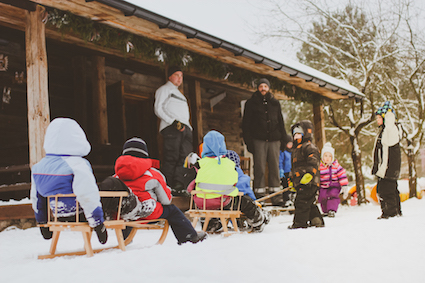
Also prior to the first winter, the original building was a shack with no heating or lighting and windows. A lot of work was done to make it a warm, welcoming and suitable base for the children.
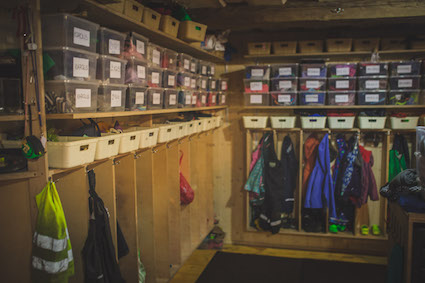
In addition to the main building, there are other structures and shelters which are used. Below you can see one example, where children also sleep. Another challenge was finding suitable outdoor gear, very little of which exists in Lithuania for young children.
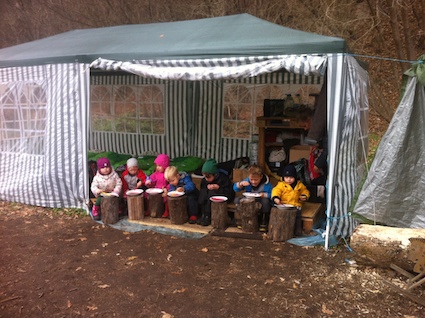
Finally, it is exciting to see Lauko darželis grow and flourish. May the next three years continue to raise the profile of outdoor provision for young children and the expansion of this form of childcare.
This blog post was originally published in September 2017.


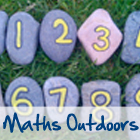
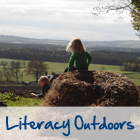
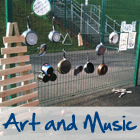
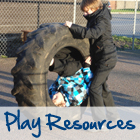
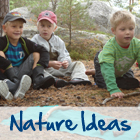
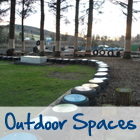
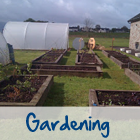
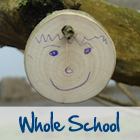




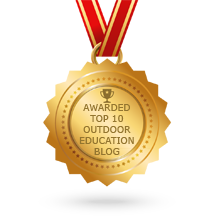





How wonderful to see how this amazing venture has gone from strength to strength, I love seeing all the little details that have made the space more homely & lived in. Well done to all involved in this kindergarten but especially Zilvinas for his belief and for putting his money and time into it all.
Bravo, Zilvinas! It is amazing to see what you have accomplished. The children and the families are so fortunate to have this opportunity and, of course, the landscape…beautiful.
Wonderful for the children